Editor’s Note: Since the 2016 Brexit referendum we’ve been following a group of people in Romford, a town that overwhelmingly voted Leave, tracking their hopes and fears. These are their stories.
On a brilliantly sunny spring morning in Romford Market, an elderly couple sip coffee, close their eyes and tilt their faces to the sky.
“Who needs Tenerife, eh?” asks a friendly passerby, referring to the popular Spanish holiday destination.
The answer, apparently, is not the people of Romford.
This is the largest town in Havering, a borough on the outermost fringes of east London that had one of the highest proportion of Leave voters in the 2016 Brexit referendum.
Scenes from Romford Market
Almost 70% of voters in Havering opted to leave the European Union, an outcome almost unheard of in the Remain capital of London.
With one year until Brexit is set to happen, Havering’s majority white and elderly population is feeling impatient.
On March 29, 2019, Britain will leave the EU officially. But it’ll still be some time before the UK feels the effects, having struck a transition deal in mid-March allowing an additional 21 months to implement policy.
Fed up with politicians dragging their heels in seemingly endless rounds of negotiations, Romford residents – regardless of how they voted – want the government to roll up its sleeves and get on with the job.
CNN spoke to some of them.
The fishmonger fed up with ‘pen-pushers’

The one-year Brexit deadline can’t come soon enough for fishmonger and Leave voter Dave Crosbie.
“I’ll be glad when it’s all over and done with, and we’re out,” says Crosbie, a third-generation fishmonger who’s been in the business since his teens.
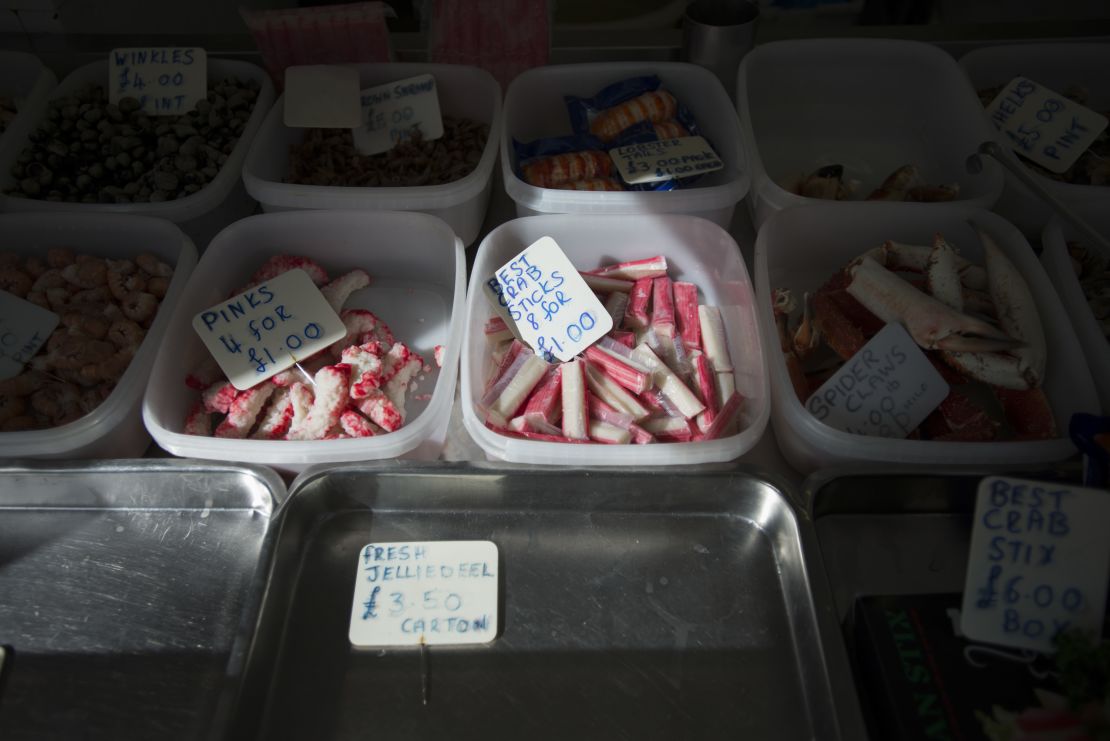
Crosbie is a well-known character at Romford Market – his imposing height, brilliant white apron and booming cockney accent make him easy to spot among the rows of stalls selling boiled sweets, fruit and faux-fur jackets.
“I think it’s typical politicians dragging things out again because they don’t know what they’re doing,” says Crosbie of the Brexit negotiations so far. “They’re pen-pushers – they’re not actually businessmen who know what they’re doing. They’re just playing it by ear and hoping for the best.”
READ MORE FROM THE SERIES
Were Crosbie to have his time again he’d vote Leave “100% – no regrets whatsoever.” But what he’d like to see is “a lot harder Brexit than the one they’ve been coming up with in the papers.”
Fishing rights have been a fraught area of negotiations. Crosbie says that if the UK regains exclusive control of its waters it would create jobs lost to “Europeans coming over into our waters and catching our fish.”

“It means they (people in fishing communities) don’t have to claim benefits, it gets their self-esteem up, gives them some fire in themselves and it don’t cost the government millions and millions in unemployment,” says Crosbie in between sips of tea while his wife serves customers at their seafood trailer.
“It’s a win-win situation,” he adds.
The Remainer who decided to run for office
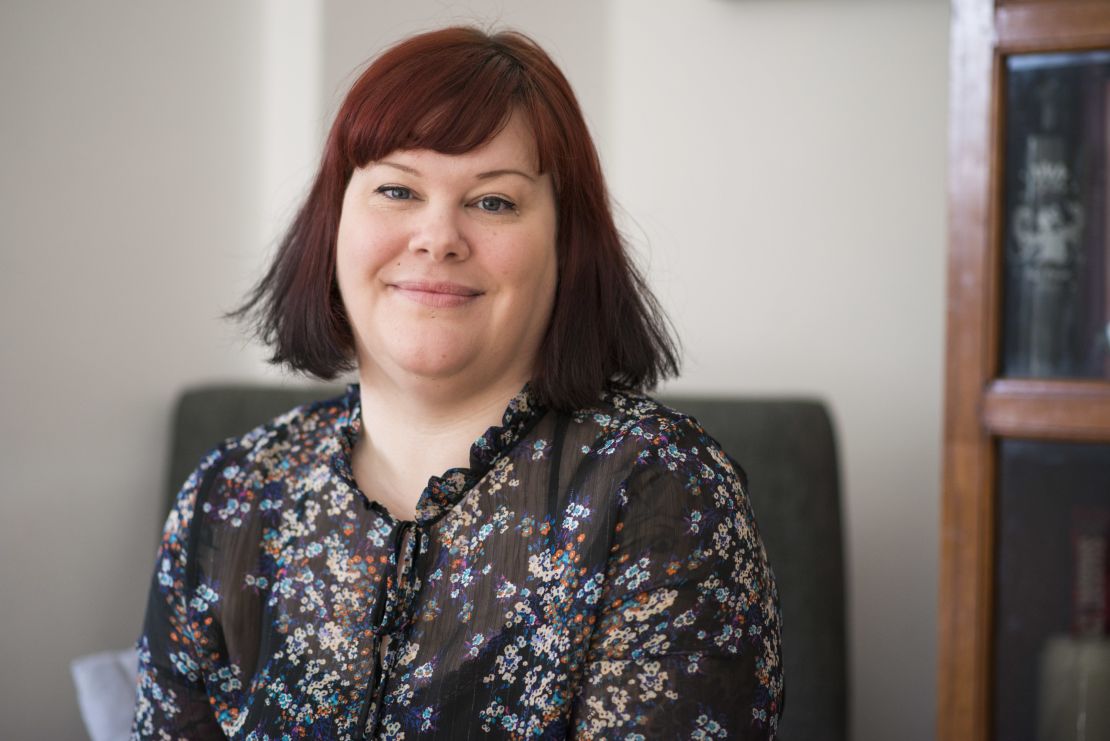
This wasn’t the outcome Remain voter Angelina Leatherbarrow wanted.
But with one year until Brexit, the mother of two has resolved to “roll up our sleeves and say let’s get on with it.”
“We can’t go back in time,” says Leatherbarrow as she gets her daughters ready for school before heading off to work at the local hospital.
“I can choose to be a ‘Remoaner’ and complain about what’s happening, or I can challenge the impact and make sure we leave Europe in the least-damaging way possible,” says Leatherbarrow, who in the last year has decided to run as a Labour candidate in upcoming local council elections.
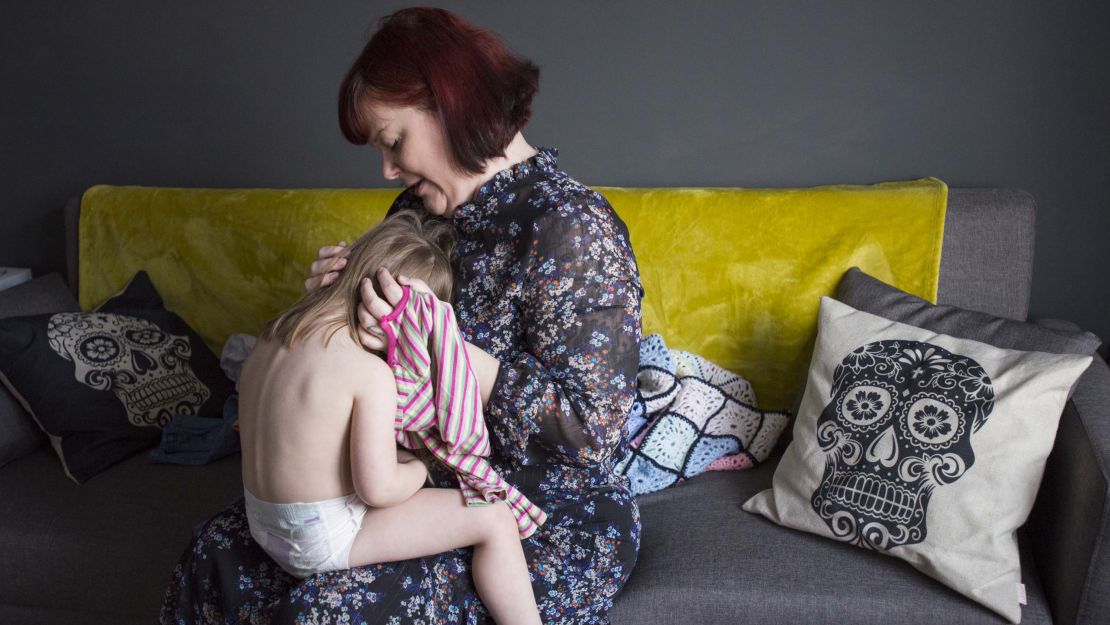
Since the referendum, Leatherbarrow has seen a rise in “Brexstremist rhetoric” in the borough and recounts a story about an Asian woman being racially abused by a shop assistant.
“When I challenged that, I became the problem. I was told ‘It’s people like you that are arguing against me’ – it was as if I was betraying the white working classes by calling out racism.”
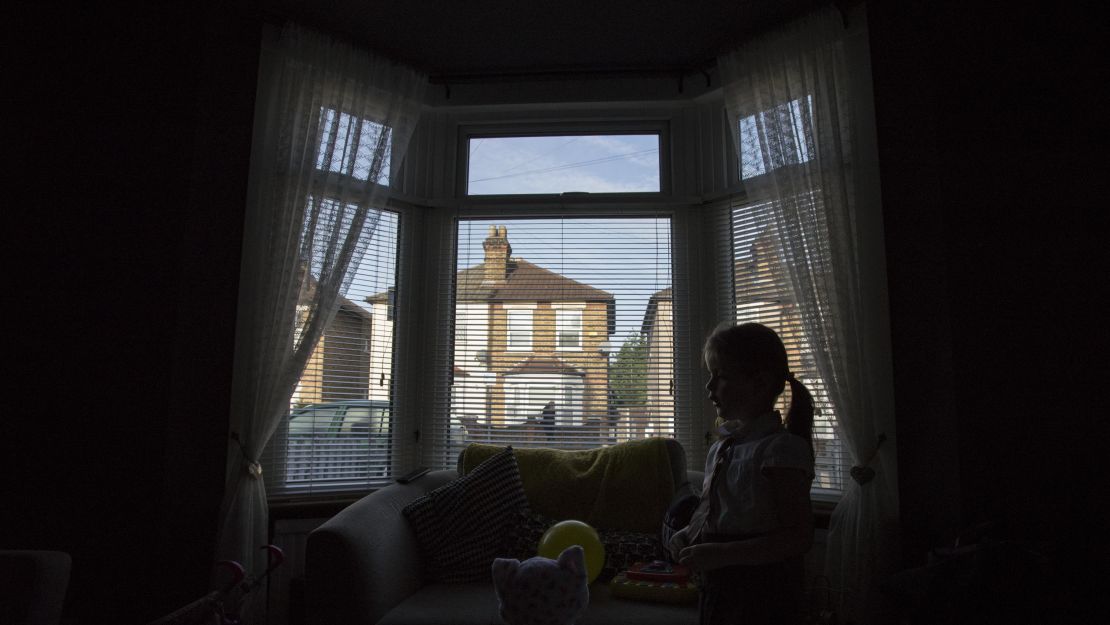
Leatherbarrow is half Maltese and grew up in London’s East End, having moved to Romford more than a decade ago in search of the type of home with a garden unaffordable to many young families in the inner city.
“I want my children to grow up in communities where they’ll meet people from different backgrounds, speak different languages, experience different foods and cultures and music,” she says.
“I don’t want those things to be taken away from my girls.”
The market vendor frustrated with ‘negative press’
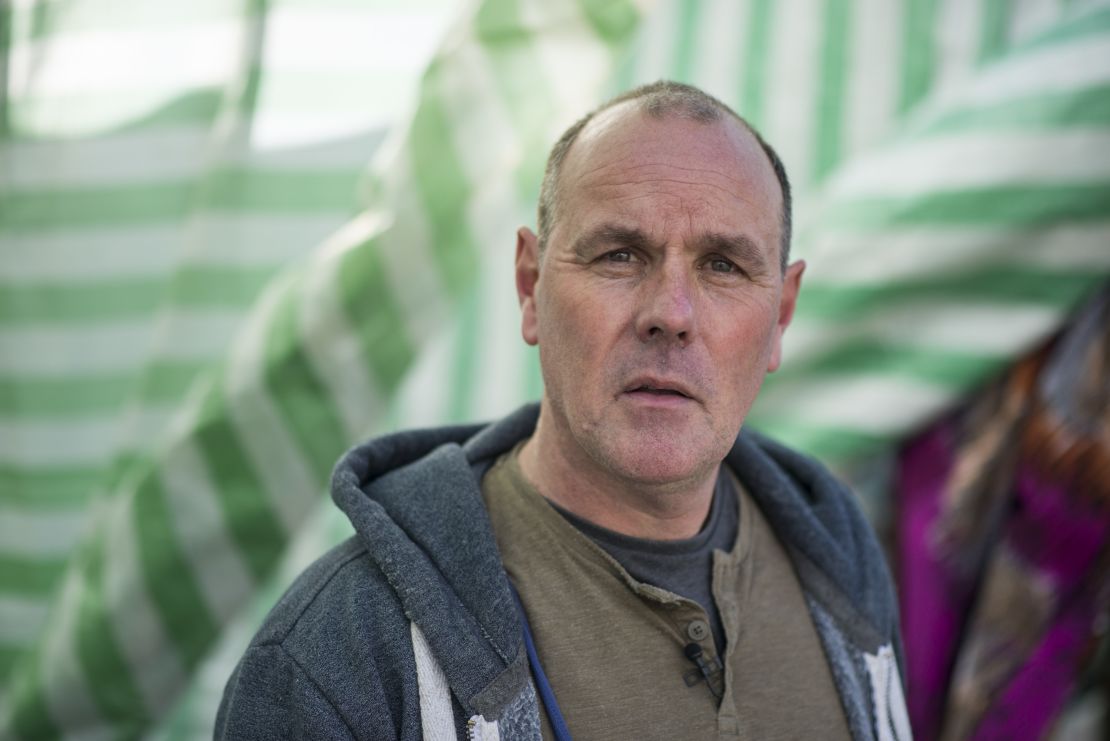
For market vendor and Leave voter Graeme Gibbons, the referendum result was something to be celebrated – it’s just a pity that the press hasn’t seen it that way.
“It’s always very negative when it’s spoken about,” he says, in between serving a steady stream of white-haired customers at the cleaning-products stall he’s owned for more than two decades.
“We had a referendum, we decided to leave and we’re being dragged back looking at the downside all the time,” says Gibbons. “We’ve got a fantastic country, so let’s move forward, let’s look to the future.”
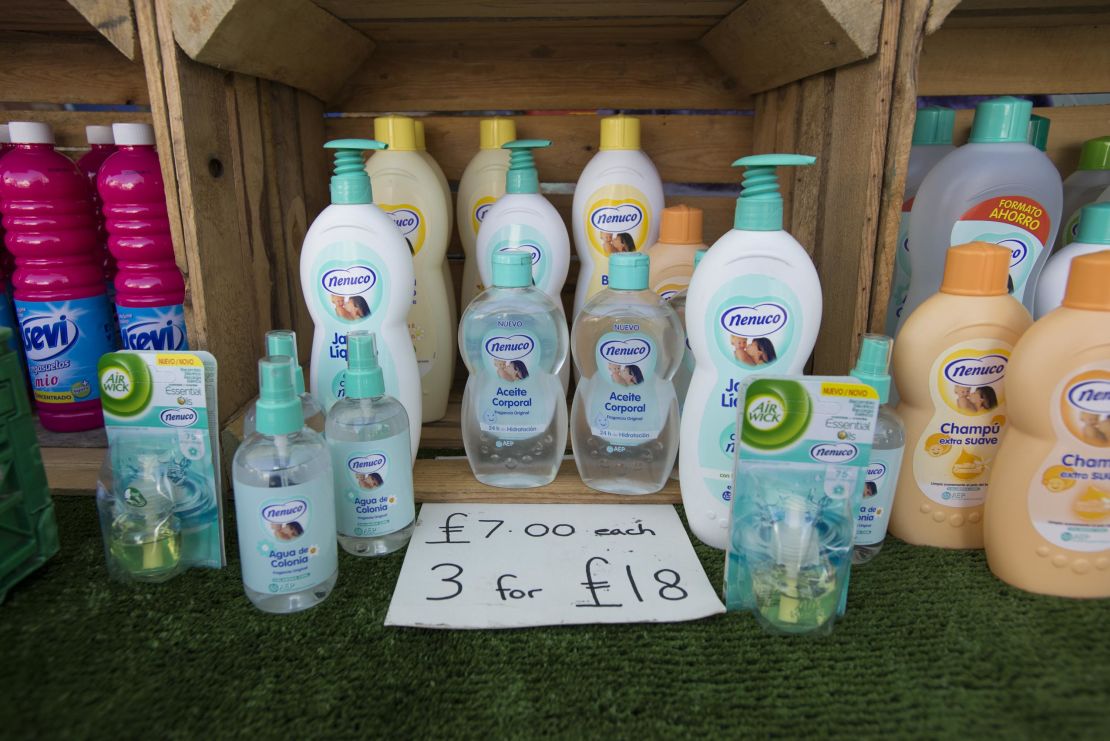
Gibbons is happy with how the Brexit negotiations have progressed so far, but admitted that “they’re going quite slowly.” Nevertheless he remains upbeat about the political wrangling between London and Brussels, adding “We’ve been in something for 40 years, we’re not just going to get out of it in five minutes.”
Gibbons has already taken a financial hit since the Brexit vote, with some of his European stock becoming more expensive against the falling pound. But it’s a price he’s willing to pay for the chance to have his three children “grow up in the Britain that I enjoyed, where they’ve got a chance to own their own property.”
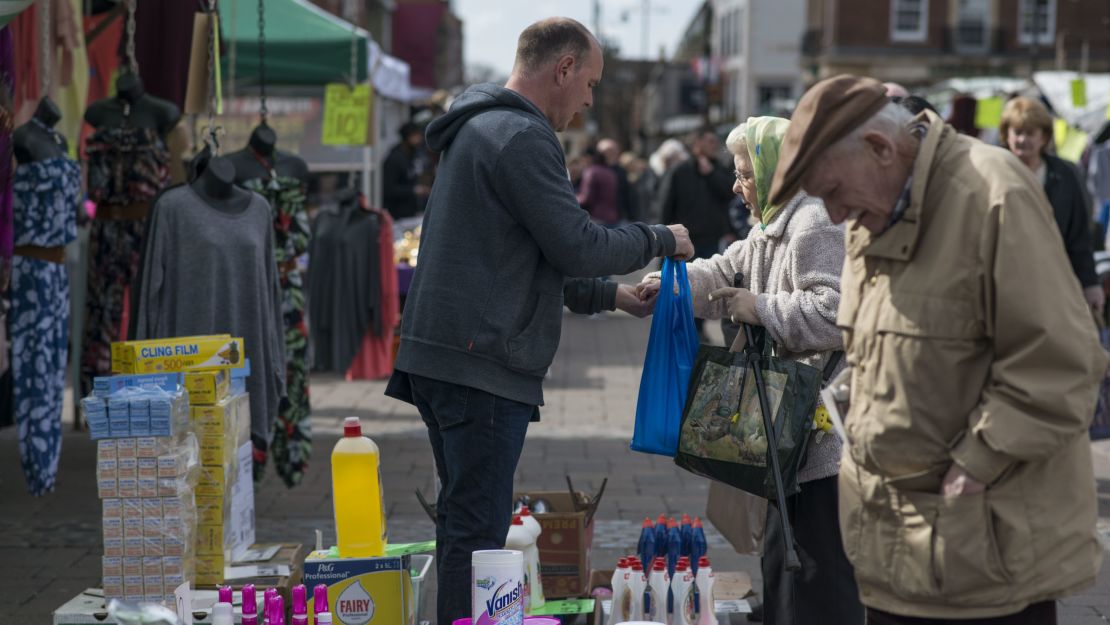
He says sky-high housing prices are partly a result of the “massive influx of people we’ve had in a short space of time.”
“Sometimes in the market I don’t hear an English voice, and English isn’t the first language in schools. Services like the NHS (National Health Service) are stretched,” adds the vendor who would vote Leave again in a heartbeat.
Does Gibbons think Brexit will roll back the clock on Britain?
“It won’t get any worse, will it?” he replies.
The marketing executive who says ‘we’re a laughing joke’

Emma Hamblett has lived in Romford her entire life, but when it came to the referendum she bucked the trend and voted Remain – even when her husband voted Leave.
“We do joke about it – every time something bad on Brexit happens I just blame him for it,” says the mother of three. “But I think he’s erring towards Remain now, just because he can see the chaos that’s happened since the referendum, and the lies that have been told and how much worse off we are going to be.”
Hamblett has also shifted her position ever so slightly in the two years since the Brexit vote. She’d still vote Remain but would also “like the EU to recognize there will be some changes within that, because we do have to think about why people voted Leave.”
“We can’t just roll over and accept whatever the EU is going to give us,” she adds.
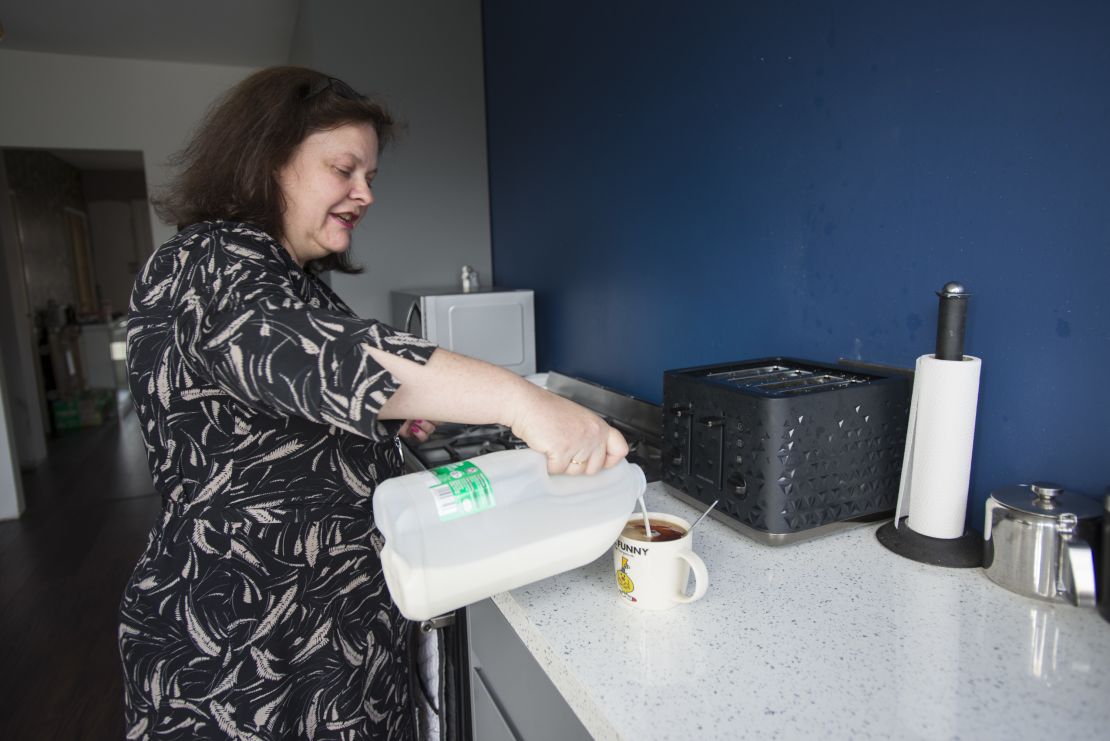
Hamblett is scathing on the government’s handling of Brexit negotiations so far. “We have been dragging our heels and I feel that we’re a laughing joke in Europe,” she says. Like Leatherbarrow, she has recently decided to stand as a Labour candidate in the local elections.
Since the vote, Hamblett says an “undertone” of racism has prompted close friends to move away from the borough.
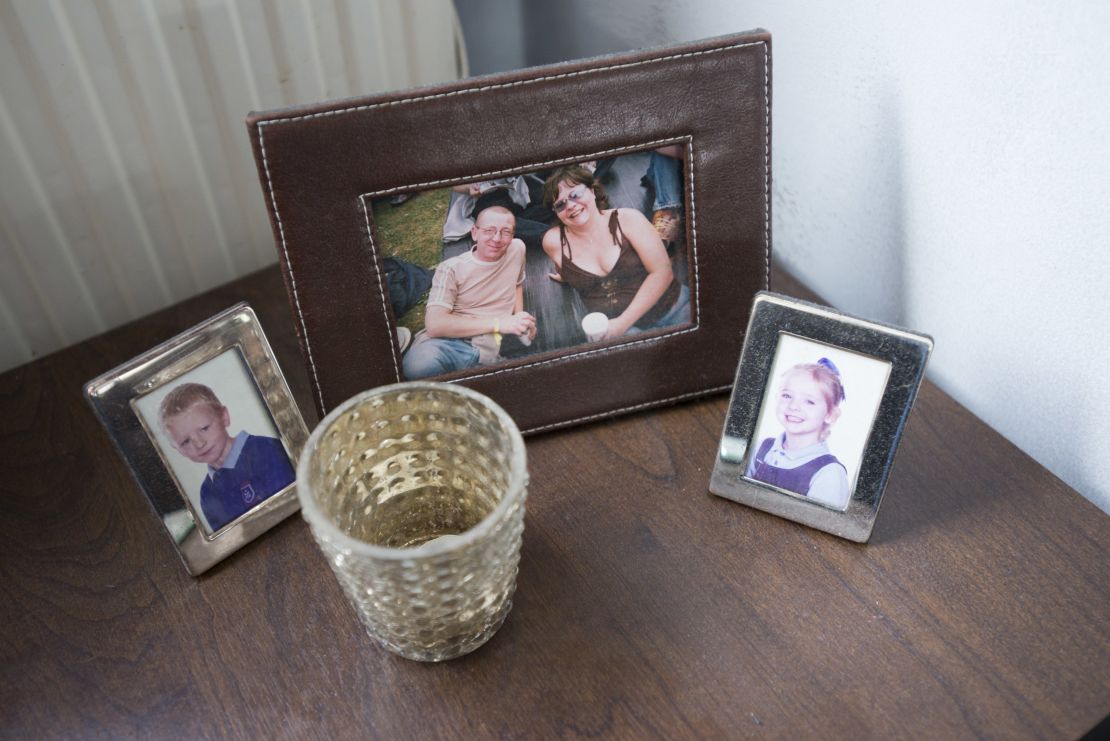
“It’s almost felt like people have been given a license to say things outside the house, which they normally would have kept inside,” says Hamblett. “You can hear it walking down the street, people are calling names out to Eastern Europeans.
“I don’t know if it’s purely down to Brexit, or its just a sign of the times and things aren’t as nice as they used to be.”
How nice things will be in Romford 12 months from now is anyone’s guess.










